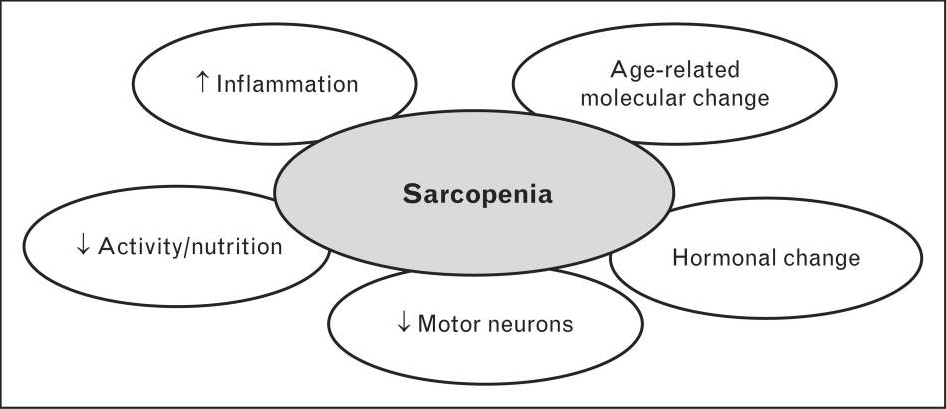Muscle loss occurs naturally with the aging, however its the speed of decline and amount that is very preventable.
Much like bone, your muscle density and strength gradually decrease over time. This is called primary sarcopenia. In our experience, most people do not realize... this does not need to happen! Particularly in the extremes that it does, AND... it is an underlying cause of many diseases and conditions!
It is a WIN - WIN situation if treated...there is MUCH a person can do to prevent this.
What are the causes of Sarcopenia?
o Increased inflammation (visceral fat) that amplifies the rate of muscle wasting
o Decreased physical activity and inadequate protein/calorie intake
o Hormonal changes resulting in decreased hormones that are needed for muscle growth (testosterone, estrogen, growth hormone)
o Age related molecular changes
o Decreased motor neurons due to apoptosis (cell death)
In fact did you know there is also a definable condition called secondary sarcopenia which is caused by:
- disuse (hospitalization, immobility, low physical inactivity),
- and/or disease (cancer, neurodegeneration, endocrine issues),
- and/or inadequate nutrition (Choi, 2016)

...wait a minute, my doctor never told me about this??
...Unless you have an acute problem such as high blood pressure, heart condition, diabetes, kidney(lower GFR's), neuropathy etc its been our experience that your doctor may not

recognize age related changes (per your age) such as sarcopenia, low hydration, lower appetite, lower energy and activity level as being EQUAL to disease. WHY? ...likely because education on the subject is minimal, interest in non-pharmacological prevention with seniors is low, time with patients minimal and limited resources available.
The correlation between treating sarcopenia and the prevention / reduction of other health conditions is undeniable!
The old saying "if you do not use it, you will use it" applies to the senior population.

Stay tuned for part 2 on this topic...